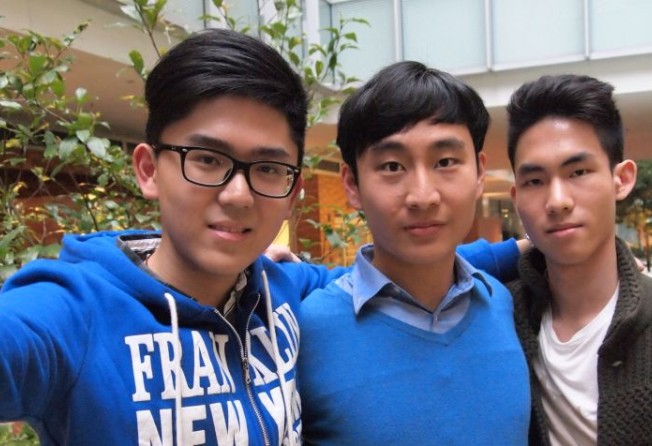Meet the Teens Who Balance University and a Charitable Startup
First-year medical students run the show at Bridge to Success Education, a social enterprise offering free tutorials to kids from low-income families.

How did you start offering free tutorials to kids?
Joshua Yim: When I was in Form 4, I joined a volunteer program where I had to tutor kids from low-income families in Sham Shui Po. I felt disrespected at first because the kids would swear and fight in class, but, over time, we bonded and I realized they needed more than just academic support. They needed someone to confide in and look up to. That was when I decided I wanted to continue reaching out to underprivileged kids. Adrian and Alan showed interest when I brought up the idea while we were studying together after a tutorial session.
Adrian Cheung: I met a child with ADHD while volunteering to help schoolchildren with their homework. At first, he wasn’t able to sit still at all, so I tried to coax him with snacks and drinks. It worked. At the end he was able to complete and turn in all of his homework, which really surprised his teacher: That made me realize the importance of helping children uncover their potential.
Alan Tsang: I have visited kids living in subdivided flats, and the bed is pretty much the only place they can eat and do their homework. I wanted to do something to get them out of their situation.
Aren’t med students busy enough already?
Adrian Cheung: We plan our time wisely. Our professor, Yuen Kwok-yung, once told us that a work-life balance is possible, as long as we use the time we would normally use for procrastination for things that actually matter.
Alan Tsang: We actually spent all of reading week promoting our service at eight universities. We got around 400 responses—about two thirds are for our tutorial referral services, and the others just want to volunteer. The commission we earn from our referral services goes to the nominal fees for our volunteer tutors. We need 14 referral commissions to cover each volunteer tutor’s nominal fee for six months of weekly sessions. More than 20 low-income students have signed up with us, but, right now, we can only afford to support around four of them.
Joshua Yim: Finding resources can get difficult, and people can be discouraging. But the way I see it is, even if you fail, you’ll still learn something.
What are your main takeaways from this experience?
Joshua Yim: Don’t give yourself excuses. Start-ups aren’t easy, and it’s tempting to give up. In a place like Hong Kong, where many parents think their kids need to become lawyers or doctors to lead stable lives, it’s like we’re programmed to live out other people’s expectations. That said, even when I become a doctor, I want to innovate.
Adrian Cheung: Our parents’ wishes could be one reason why the three of us ended up studying medicine. In a way, we may be following the crowd, but what we do in the meantime is up to us.
Alan Tsang: A friend once said that in addition to establishing a career, you have to find something else to fall back on. While my career goal is to become a doctor, I want to be doing something else that can keep me feeling positive when the going gets tough.
Adrian Cheung: Sure, it’s important to stick to your goals, but you should also care about how your loved ones feel about them. After all, you need their support to fulfil your dreams.